Aussie supermarkets questioned over plastic packaging in stores
Customers are up in arms about a simple thing supermarkets do that causes major harm to the planet. These are the worst examples.
Shoppers are becoming more aware of how much plastic they use, with many working hard to reduce the number of single-use items in their daily lives.
More people than ever bring their own reusable bags when grocery shopping and actively buy products that have minimal plastic packaging.
However, it can become frustrating when you walk into a supermarket and are bombarded with a sea of unnecessary packaging, particularly in the fruit and vegetable section.
News.com.au has today launched the series What a Waste to coincide with Planet Ark’s National Recycling Week, highlighting the impact single-use plastics have on the environment and encouraging readers to reduce their personal waste.
An increasing amount of customers are calling supermarkets out on the vast amounts of plastic used in their stores each day.
Do better @Coles ... #plasticshame pic.twitter.com/RnACUKJIzd
— Roz Kelly (@Roz_Kelly) June 29, 2019
@woolworths how do you justify using twice as much plastic as needed when you claim to focus on cutting down on single use plastics? pic.twitter.com/ktk1ICAMwZ
— Nic Sanderson (@NMcES) November 10, 2019
@ALDIAustralia Shame to see over 70% of your fresh produce section in the Caboolture store covered in unnecessary plastic packaging. Not good enough.
— Teri M Official (@TeriMOfficial) November 2, 2019
Far too many small #plastic labels recently recovered from the compost bin. Surely our supermarkets & fruit&veg suppliers & retailers can do better #WarOnPlastic #Sydney #NSW #NewSouthWales #Australia #Aldi #Coles #Woolworths #IGA pic.twitter.com/omtXplYAO8
— Peter F Williams (@pfwaus) August 4, 2019
As part of the series, we have compared Australia’s top three supermarkets to find out which has the most environmentally friendly options for customers.
News.com.au visited a Woolworths, Coles and Aldi store in Sydney and took note of how much plastic packaging was being used.
WOOLWORTHS
While Woolworths does have a lot of fresh produce on display without packaging, it is hard not to notice the significant amount of fruit and vegetables in plastic bags or plastic boxes.
Items such as apples, bananas, mandarins and pears can be bought without packaging but are also available to be bought pre-packaged in plastic.
Two of the worst examples of excessive packaging news.com.au noticed were capsicums available in sets of three in a plastic bag, along with organic capsicums wrapped in plastic in sets of two.
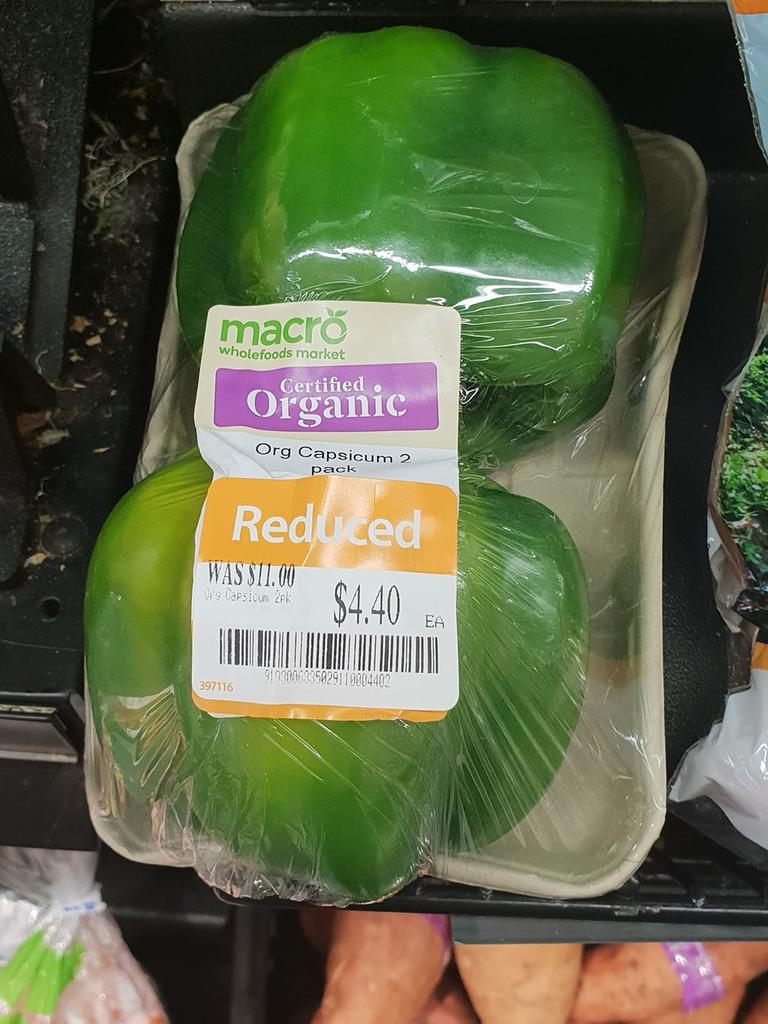
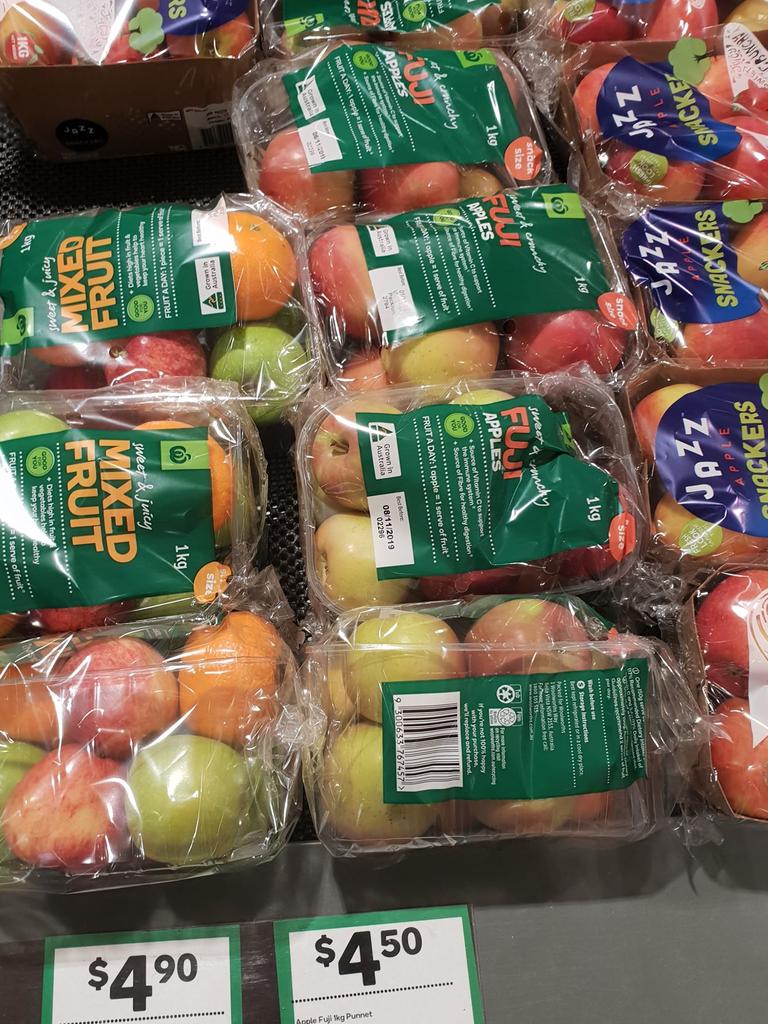
The packaging may seem unnecessary, but Woolworths says it has taken initiative to reduce plastic.
“We understand many of our customers want us to reduce plastic packaging in our stores and we’re working hard to do just that,” a Woolworths spokesperson said.
“Over the last two years, we have removed around 1000 tonnes of plastic from our fruit and vegetables and bakery ranges.”
According to the supermarket giant, it has removed plastic wrappings from tomatoes, organic bananas, spring onions, celery bunches and kale.
Different stone fruit and apple punnets have also been switched from plastic to recyclable cardboard.
New pulp-based packaging, typically made from recycled materials, is also being introduced for a number of bakery items.
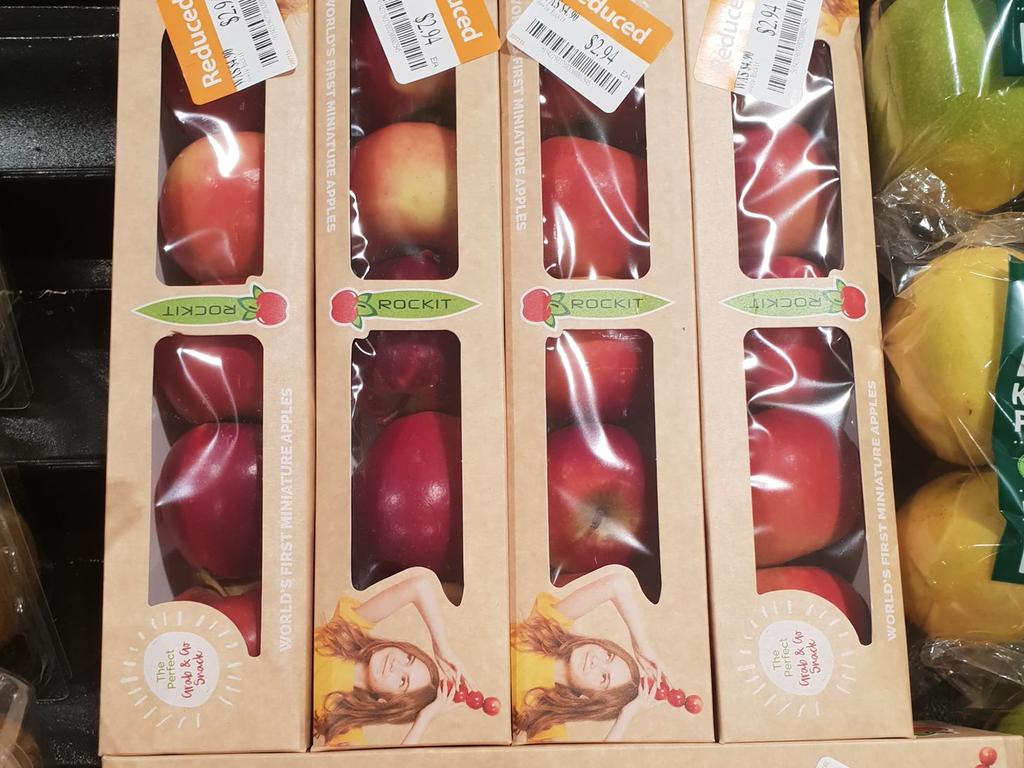
Despite introducing more sustainable packaging, the company also noted there was a reason many fresh items were packaged in plastic.
Research from the Australian Fresh Produce Alliance (AFPA) found “packaging of fresh produce does help to avoid and reduce food waste, by protecting the integrity of the product in the supply chain”.
The study also found packaging extended items’ shelf life and prevented them from being damaged through touching and handling.
Woolworths said customers were able to return soft plastics to the store so they could be recycled.
“We have also rolled out REDcycle facilities in all our stores, which allows customers to return soft plastics, including fruit and veg packaging, to our stores to be recycled,” the spokesperson said.
“Nationally, we’ve now repurposed more than 900 tonnes of soft plastics into useful items like outdoor furniture and benches for community groups and stores with REDcycle.
“We have also committed to bringing TerraCycle’s zero-waste reusable packaging solution, Loop, to Australia in mid-2021 as our next step in supporting a circular economy.
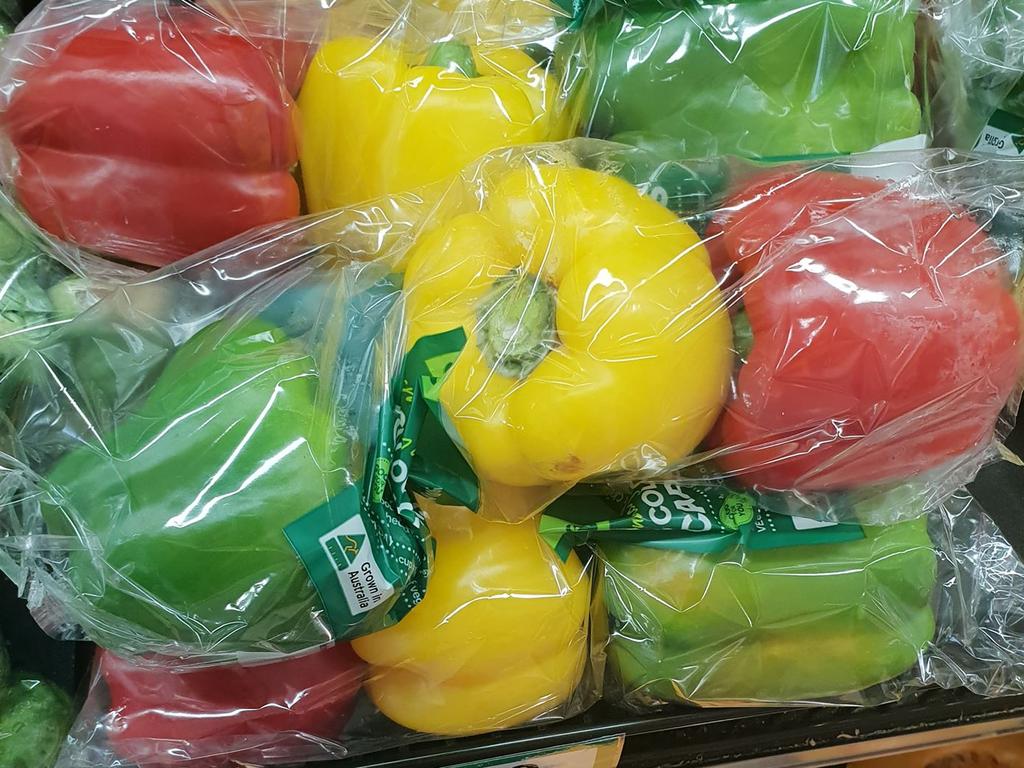
“The program will allow customers to purchase products in reusable containers and then return them once they are finished to be cleaned, refilled and reused.”
Woolworths is also working towards having 100 per cent of its own brand packaging to be either reusable, recyclable or compostable by 2025.
The spokesperson for the organisation said the company recognised “there is more to do”.
“(Woolworths) will continue to look for new ways to reduce plastic packaging across our range,” they said.
COLES
Coles has a similar set-up to Woolworths, with a mixture of unpackaged produce and fresh items wrapped in plastic.
Walking around the fresh produce section, the Coles news.com.au visited seemed to have more items packaged in unnecessary plastic than other stores.
Along with the usual plastic bags of apples, pears, mandarins and capsicums, there were also trays of sweet potato and ginger sealed in plastic.
One of the other items that stood out were a few heads of broccoli inside a plastic bag.
There were also plastic boxes of garlic cloves and separate plastic boxes of whole garlic.
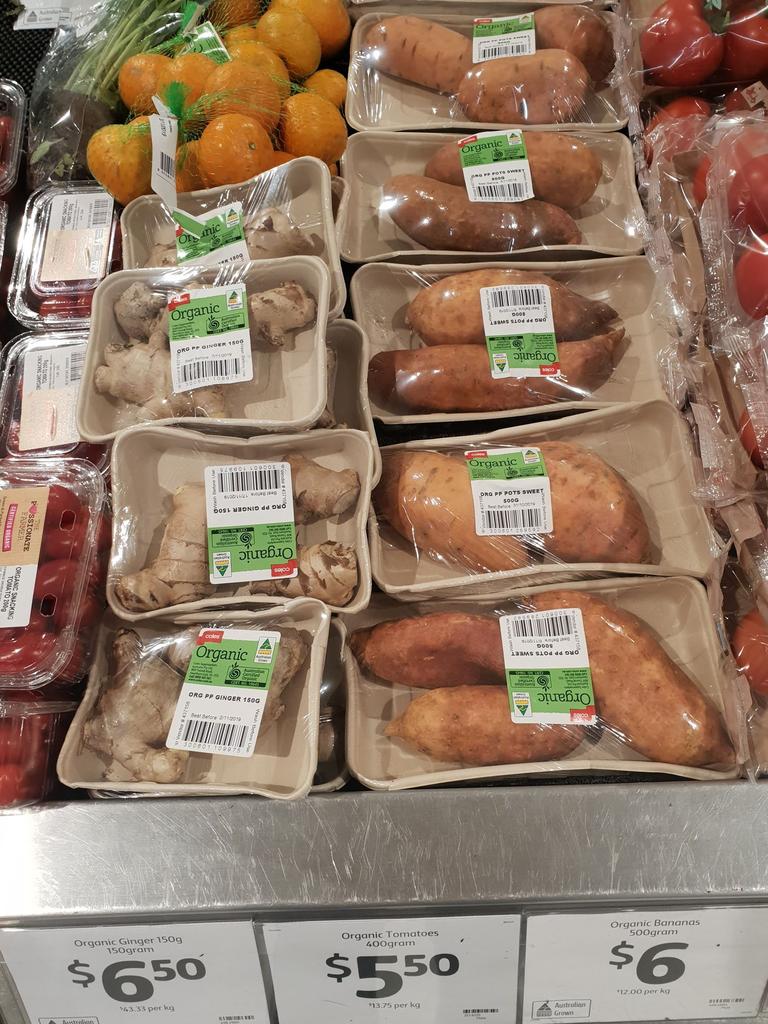
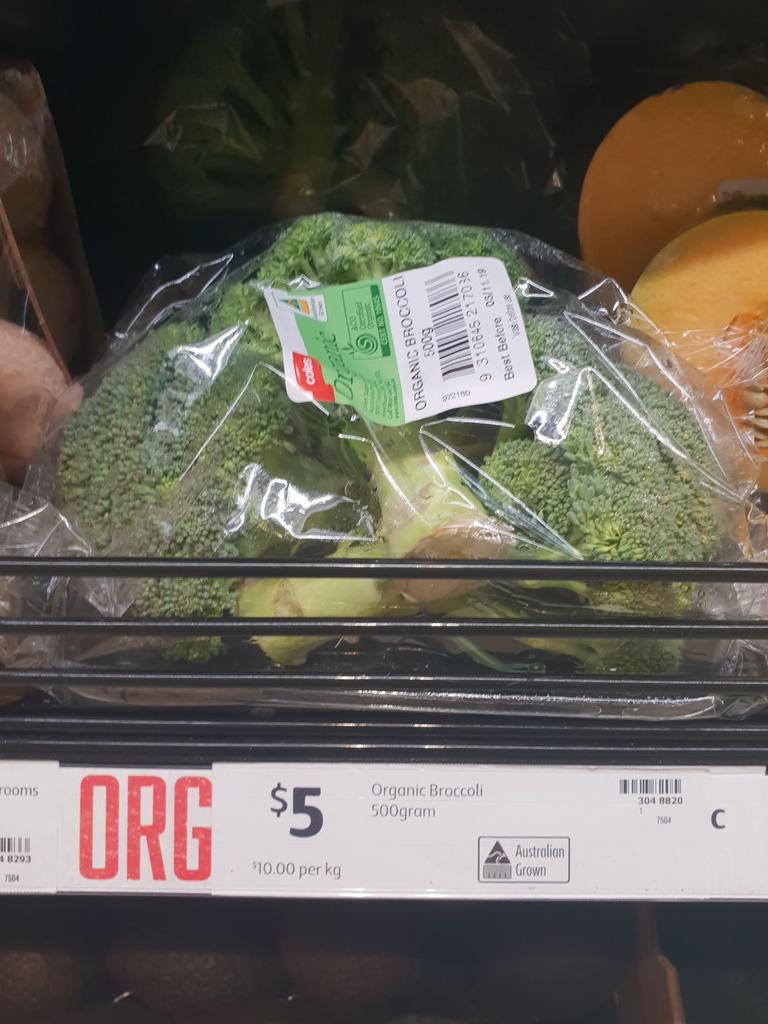
However, Coles noted that many products packaged in plastic were organic produce.
Growing organic produce required different farming techniques, resulting in the cost of the fruit and vegetables being higher to ensure farmers are fairly paid.
As a result, Coles said many of its suppliers packaged produce differently so it wasn’t confused with non-organic products.
A spokesperson for the store said Coles wanted to be recognised as “Australia’s most sustainable supermarket”.
“We understand the importance of appropriate packaging in maintaining food safety, supporting product longevity and reducing food waste,” the spokesperson said.
“At the same time, Coles is committed to making our packaging more sustainable.”
Coles also offers REDcycle in its stores across the country, noting it was the first major Australian supermarket to roll it out to all stores.
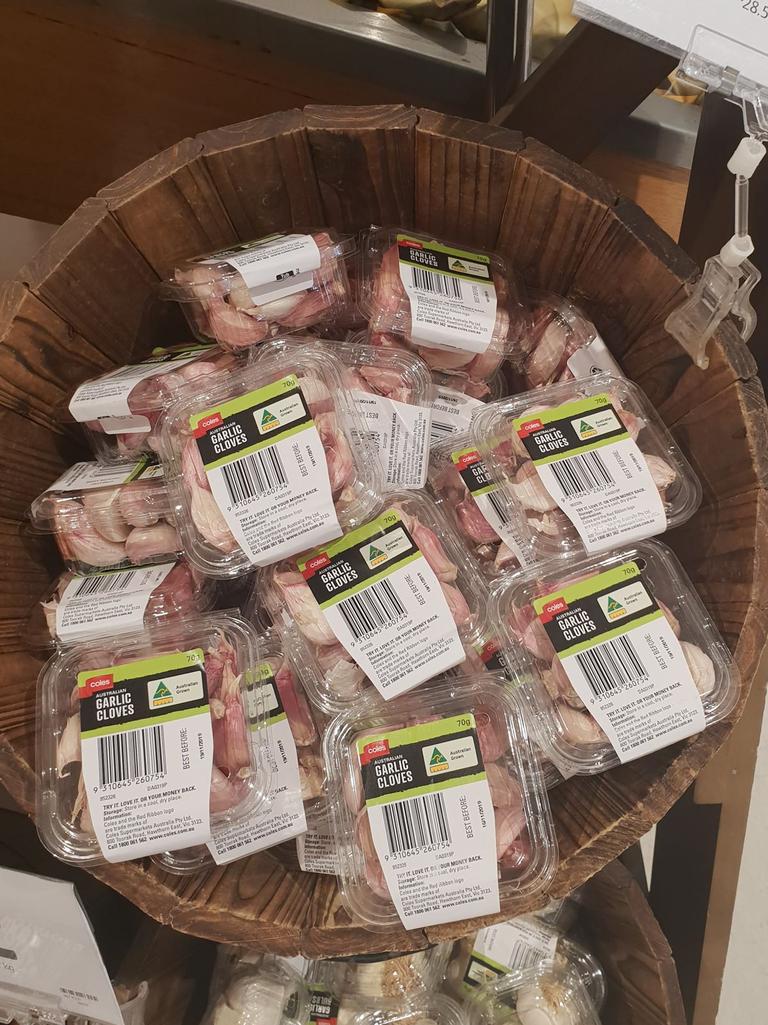
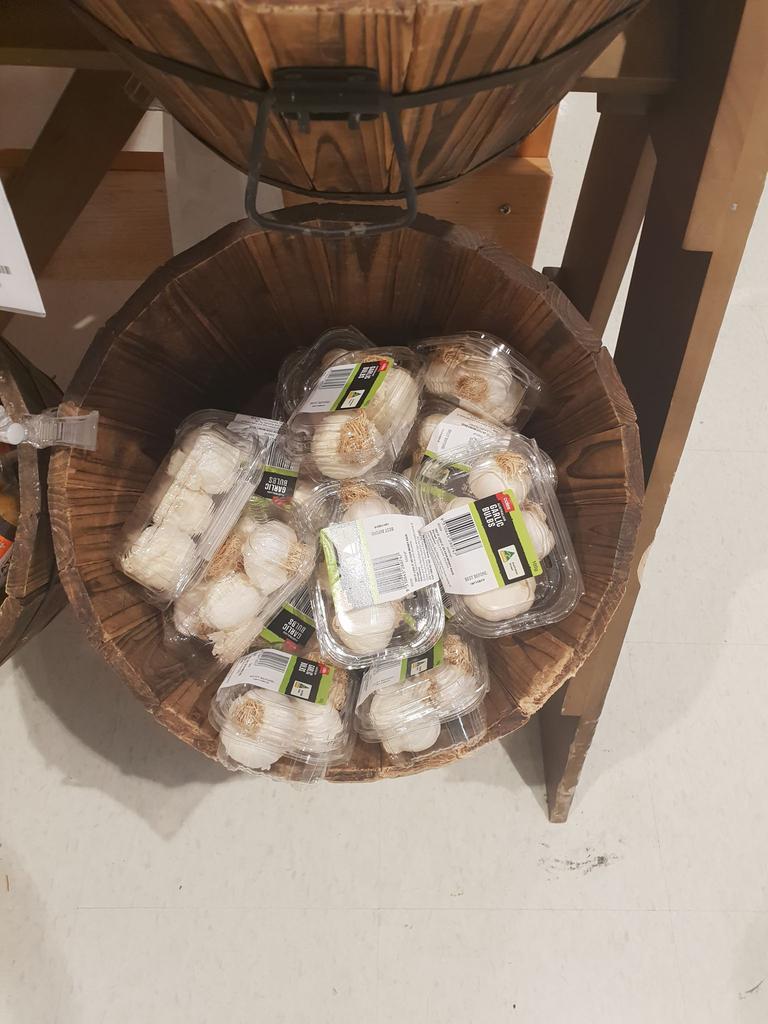
“Since the program began in 2011, Coles has diverted 715 million pieces of plastic from landfill across Australia, including more than 200 million pieces in FY19 alone,” the spokesperson said,
“Coles is also actively working with our suppliers on more sustainable and recyclable forms of packaging across all products.
“Coles is a member of the Australian Packaging Covenant, which sets sustainable packaging guidelines and we also have our own Sustainable Packaging Policy.”
Along with introducing more sustainable packaging, the supermarket said it had halved food waste in its stores by donating unsold edible food to people in need and diverting food waste to animal feed, clean energy, fertiliser and compost.
“Our journey to becoming a truly sustainable company will take time, but these commitments are an important first step,” the spokesperson said.
ALDI
Aldi doesn’t have the same extensive range of fresh produce as the other two stores but there was still a significant amount of plastic-packaged produce.
There were crates of apples, pears and bananas being sold in plastic bags and marketed towards being used in children’s lunch boxes.
Like the other stores, Aldi also had capsicums wrapped in plastic, along with various other fruits, either in plastic bags or plastic boxes.
One of item that stood out was a single head of iceberg lettuce on display in a plastic bag.
Unlike Coles and Woolworths, this Aldi store didn’t seem to have the option to buy mushrooms in a paper bag as an alternative to the ones packaged in plastic.
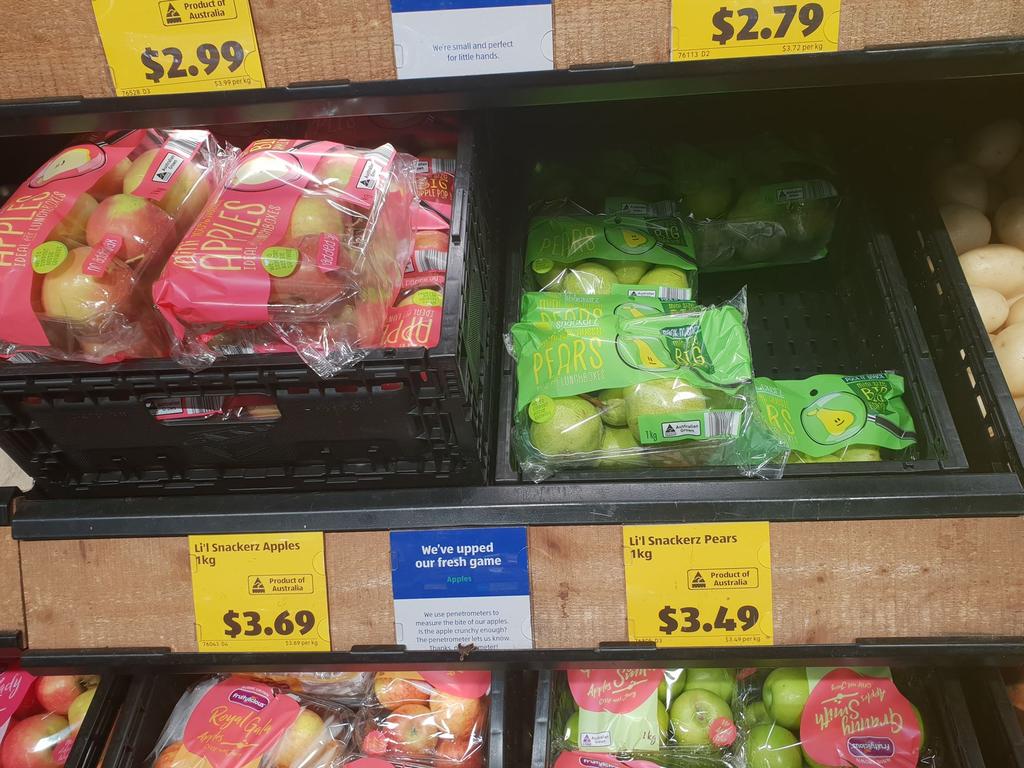
Aldi told news.com.au that reducing plastic was a process that would take years, not weeks.
The supermarket noted some of the fruit packaged in plastic was actually the result of them trying to use as much of growers’ crops as possible.
Smaller fruits that might often be overlooked are sold together in their Li’l Snakerz range.
Aldi Australia produce buying director Gina Goodridge said packaging prevented wastage.
“Packaging on a select range of our fresh fruit is used to ensure the freshness of the product for our customers,” she told news.com.au.
“From providing a physical barrier to delicate produce like strawberries and mushrooms, to preventing the greening of potatoes or the dehydration of refrigerated produce, our packaging methods are designed to deliver optimum freshness and prevent wastage.”
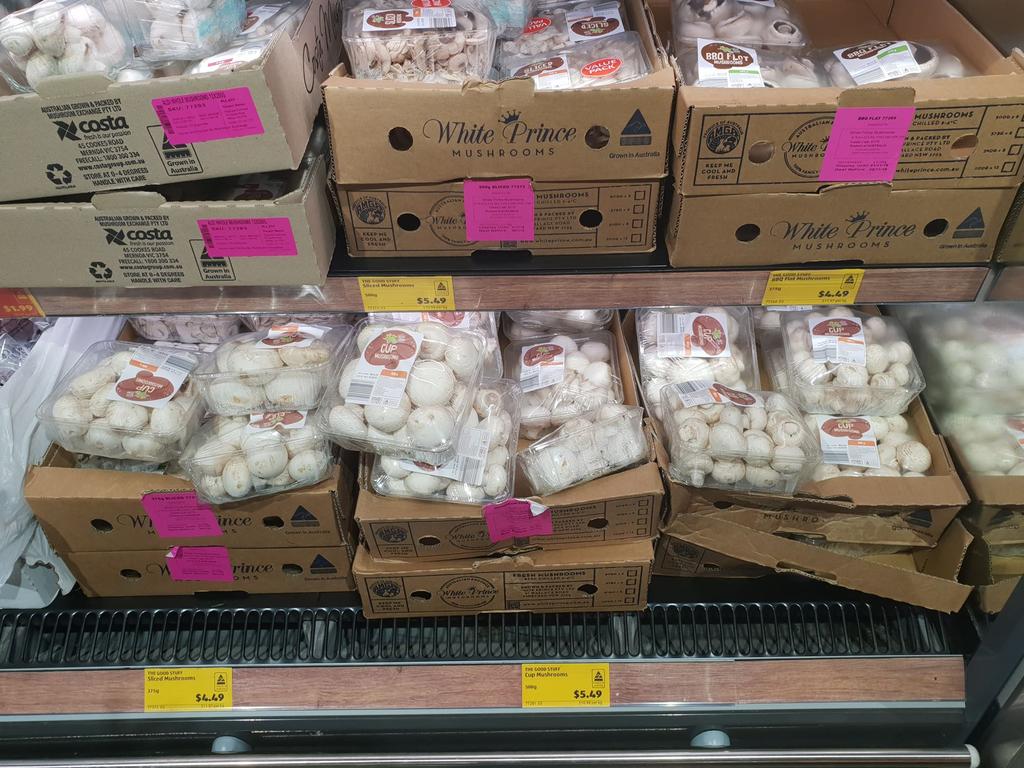
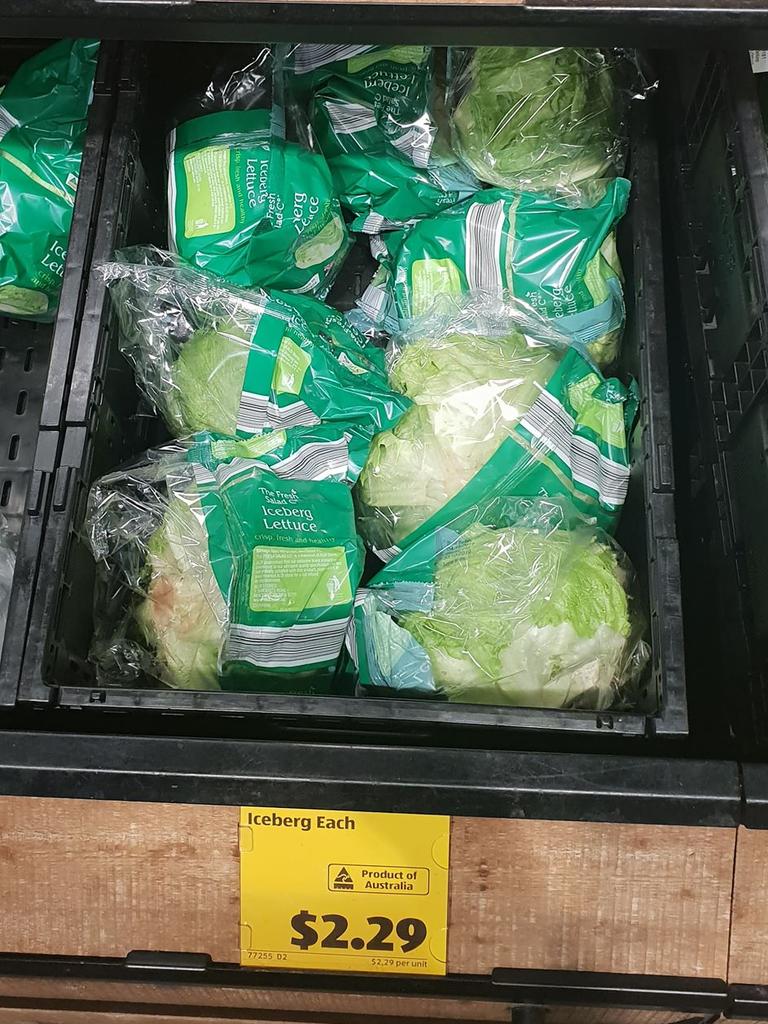
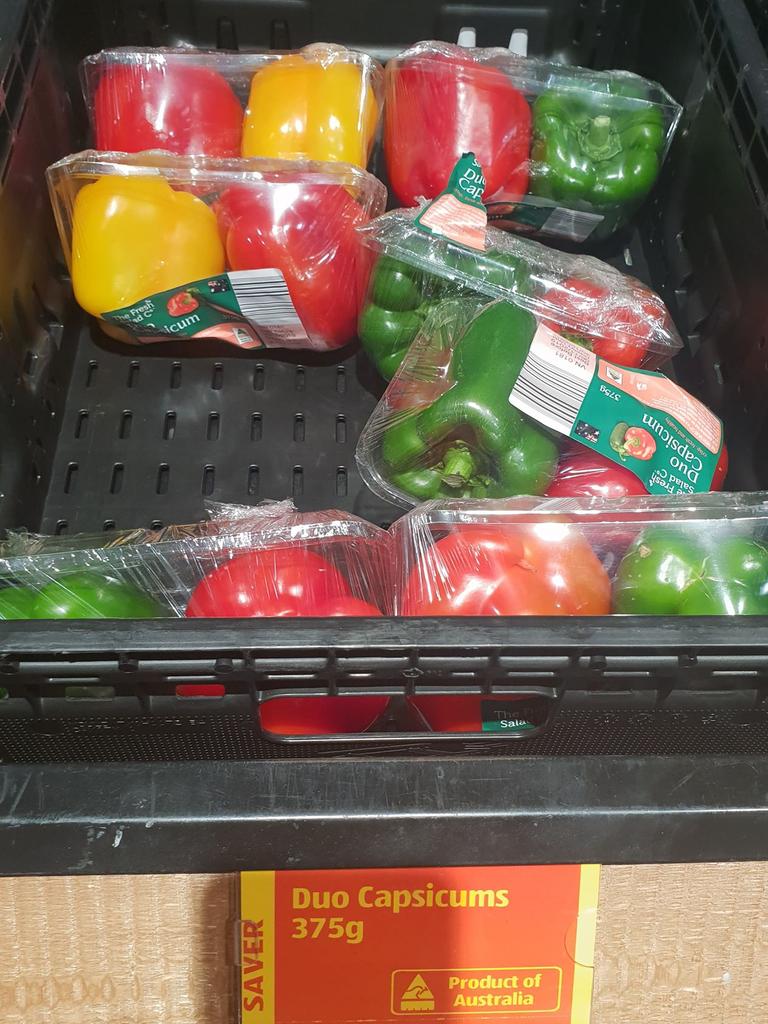
Even though some fresh items may be packaged in plastic, Aldi said it was aiming to reduce plastic packaging by 25 per cent by the end of 2025.
The supermarket has removed more than 11 million single-use plastic forks from noodles bowls and cups and aims to have cotton buds and plastic plates gone from stores by the end of 2020.
It is also worth noting Aldi has never offered free plastic bags to shoppers, a decision that has avoided 40,000 tonnes of plastic from entering the environment.
The supermarket also claimed the majority of fruit and vegetables are transported to stores from the warehouse in reusable crates, then displayed in store in these same crates.
The crates, which are made of recycled plastic, are then used multiple times.
Aldi is also pushing for packaging on their exclusive brands to be reformulated as 100 per cent recyclable, reusable or compostable by the end of 2025.
The supermarket also noted it established Australia’s first national supermarket battery recycling program and are continually increasing recyclable packaging across our product ranges.
What excess packaging drives you mad? Comment below




